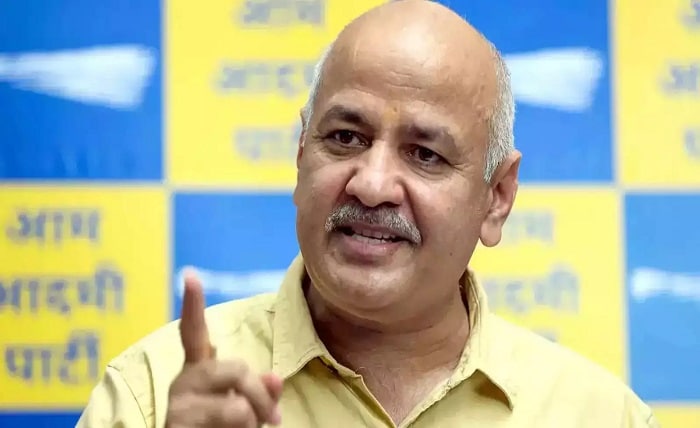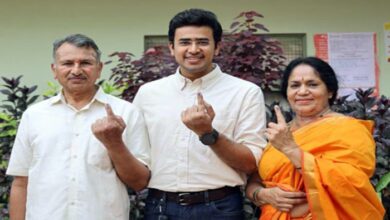Manish Sisodia: A Comprehensive Insight into the Journey of an Education Reformer and Politician

Manish Sisodia was born on February 5, 1972, in Hapur, Uttar Pradesh, into a humble, middle-class family. Growing up in a modest household, Manish Sisodia learned the values of hard work and simplicity early in life. His father was a teacher, which possibly sparked his later interest in education reforms.
The academic journey of Manish Sisodia began in Hapur, followed by a diploma in journalism. Unlike many traditional politicians, Manish Sisodia had a media background, having worked with Zee News and All India Radio. This exposure to mass communication gave Manish Sisodia deep insight into public issues and helped shape his future activism and political pursuits.
From a very young age, Manish Sisodia was inclined towards social causes and public welfare. Before stepping into politics, Manish Sisodia was already contributing to society through various NGOs, paving the way for a political ideology centered around education and transparency.
Manish Sisodia: Transition from Journalism to Activism
The shift from journalism to activism was a defining phase in Manish Sisodia’s career. After working in electronic media for nearly a decade, Manish Sisodia realized the limitations of journalism in bringing about deep-rooted change. He co-founded Kabir, a non-governmental organization advocating for transparency and the Right to Information (RTI).
Manish Sisodia played a key role in the RTI movement, working alongside Arvind Kejriwal and other activists. During this time, Manish Sisodia worked at the grassroots level, educating people about their rights and challenging government opacity. This activism phase was crucial in establishing Manish Sisodia as a credible public figure with a mission to empower the common man.
The success of the RTI movement and the visibility it provided made Manish Sisodia a familiar name in civil society. His dedication was instrumental in building the foundations of what would later become the Aam Aadmi Party (AAP), where Manish Sisodia emerged as a co-founder and key strategist.
Manish Sisodia: Role in the Formation of Aam Aadmi Party (AAP)
Manish Sisodia was one of the core members involved in the India Against Corruption movement in 2011, which demanded the enactment of the Jan Lokpal Bill. During this movement, Manish Sisodia worked closely with social activists like Anna Hazare and Arvind Kejriwal, becoming a voice of reform.
After the movement took a political turn, Manish Sisodia became one of the founding members of the Aam Aadmi Party in 2012. The core ideology of AAP, including anti-corruption and pro-people governance, resonated deeply with Manish Sisodia’s personal beliefs.
With his grassroots experience and communication skills, Manish Sisodia was instrumental in drafting policies and building the party’s base, particularly in Delhi. His political acumen helped AAP secure a massive victory in the 2015 Delhi elections, where Manish Sisodia was elected as the MLA from Patparganj.
Manish Sisodia: Revolutionizing the Education Sector in Delhi
Arguably the most defining contribution of Manish Sisodia is in the field of education. As the Deputy Chief Minister and Education Minister of Delhi, Manish Sisodia brought a paradigm shift in how government schools operate in India.
Under Manish Sisodia’s leadership, Delhi saw an overhaul of its public school infrastructure. From clean classrooms to smart boards and libraries, Manish Sisodia ensured world-class facilities for every student. His focus was not just on infrastructure but also on pedagogy, training, and motivation of teachers.
One of Manish Sisodia’s landmark initiatives was the Happiness Curriculum, launched in 2018. Designed to promote emotional well-being, this curriculum gained international attention. Leaders from around the world appreciated the efforts of Manish Sisodia in creating a joyful and mentally healthy learning environment.
Furthermore, Manish Sisodia introduced the Entrepreneurship Mindset Curriculum (EMC), aiming to build entrepreneurial spirit in students. These reforms established Manish Sisodia as a trailblazer in Indian educational policy.
Manish Sisodia: Economic Reforms and Budget Allocation
As Delhi’s Finance Minister, Manish Sisodia presented multiple state budgets that emphasized welfare, education, and healthcare. His economic policies reflected the AAP government’s philosophy of inclusive growth and governance focused on the common man.
Manish Sisodia consistently allocated over 25% of the Delhi budget to the education sector, signaling its top priority. These decisions were not merely symbolic but translated into ground-level transformations visible in government school rankings and student performance.
Apart from education, Manish Sisodia streamlined revenue collections and digitized public services. His vision was to make governance transparent and efficient. During COVID-19, Manish Sisodia also ensured funds were redirected to health infrastructure without compromising education spending.
The commitment to prudent financial planning without increasing tax burdens showcased Manish Sisodia’s fiscal management capabilities. His work was often cited as a model for other states.
Manish Sisodia: Controversies and Legal Challenges
Despite numerous achievements, Manish Sisodia has also faced controversies, particularly allegations related to the Delhi excise policy. In 2022, the Central Bureau of Investigation (CBI) and Enforcement Directorate (ED) launched inquiries involving Manish Sisodia over alleged irregularities in the liquor policy.
Manish Sisodia, however, denied any wrongdoing and maintained that the allegations were politically motivated. His supporters rallied behind him, citing his clean track record in public service and transformative work in education.
The arrest and judicial custody of Manish Sisodia in early 2023 sparked widespread protests and political debates. Many observers and educationists expressed concern over the potential loss to Delhi’s education model due to his absence.
Even amid these challenges, Manish Sisodia received support from global education leaders, NGOs, and political allies, who emphasized the need to evaluate his legacy beyond political controversies.
Manish Sisodia: Legacy and Future Prospects
The legacy of Manish Sisodia is one that combines activism, governance, and educational reform. His approach has inspired several states to emulate Delhi’s education model. Despite legal issues, Manish Sisodia’s work continues to influence policymakers and educators across India.
Looking forward, if acquitted, Manish Sisodia may play a crucial role in expanding AAP’s reach beyond Delhi. His administrative experience and popularity could position him as a key player in national politics.
Even if his political journey sees pauses, the policies and systems introduced by Manish Sisodia are likely to continue, thanks to institutional momentum. His efforts have proven that reforms are possible with commitment and vision.
In the broader picture, Manish Sisodia’s contribution to Indian politics is a reminder that governance can be innovative, people-centric, and transformative.
Conclusion
Manish Sisodia’s journey from a small town in Uttar Pradesh to becoming one of India’s most influential education reformers is both inspiring and impactful. Whether it was pioneering the Happiness Curriculum or restructuring school management systems, Manish Sisodia demonstrated that intent and integrity can drive change.
Even as he battles legal challenges, the legacy of Manish Sisodia stands firm — a testament to his work in education, financial reform, and clean governance. The name Manish Sisodia has become synonymous with education excellence and will remain a pivotal figure in the discourse on public policy and administration in India.
FAQs
Q1. Who is Manish Sisodia?
Manish Sisodia is an Indian politician, education reformer, and co-founder of the Aam Aadmi Party. He served as Delhi’s Deputy CM and Education Minister.
Q2. What are the key contributions of Manish Sisodia in education?
Manish Sisodia introduced the Happiness Curriculum and Entrepreneurship Curriculum, and transformed Delhi government schools.
Q3. Why was Manish Sisodia arrested?
Manish Sisodia was arrested in 2023 in connection with the Delhi excise policy case, though he claims the charges are politically driven.
Q4. How did Manish Sisodia start his career?
Manish Sisodia began as a journalist and later became an RTI activist before co-founding the Aam Aadmi Party.
Q5. What is the future of Manish Sisodia in politics?
The political future of Manish Sisodia depends on legal outcomes, but his policy legacy, especially in education, continues to shape Indian governance.





